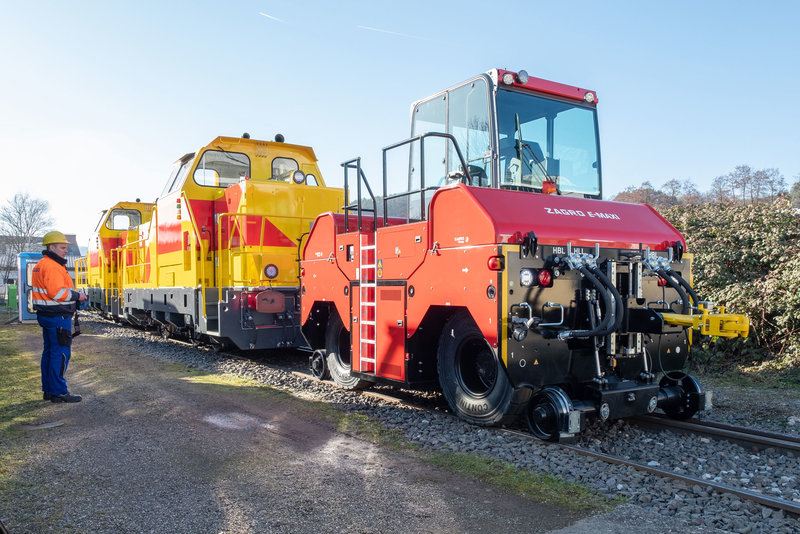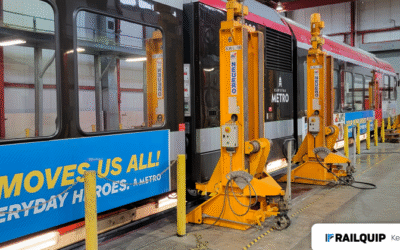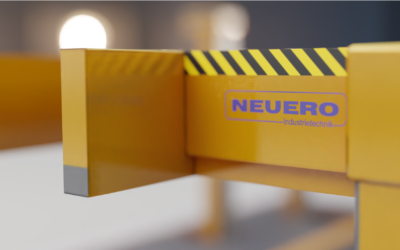In the real sense, owning a rail car in developed economies such as the United Kingdom, where the rail and railway industries have undergone privatization, could be easier than you thought. You will only have to follow the procedures the associated regulatory agencies set to get things rolling.
Apart from the finances, you may only need to walk through the legal processes, operational scheduling, licenses, and necessary insurance protocols.
Here’s what you need to know before moving your rail car.
Research the company you are considering to move your railcar
You may start your search process by searching for items such as railcar mover near me. You want to find railcar movers with experience, the right equipment, the right knowledge for the job. Remember that railcar movers are part of a niche industry as it is not one that many people involve themselves in.
That means that you are dealing with a smaller network of individuals and companies. Since it is a smaller network of railcar mover companies, that makes your job a bit easier.
Remember that there are many options for you in this market from an equipment standpoint but finding good operators is the key. For instance, from an equipment standpoint, you can buy new, used, or you can purchase rental and reconditioned railcar movers for your project. These pieces of equipment account for tractive effort, whether it be track mobile or other options within the industry.
Several companies create literal railcar movers in areas in the northern United States and other places. These brands vary from Boss to Trackmobile and Rail King to many more. These railcar movers serve as a fantastic option when moving one or several rail cars with load or that do not have a load.
Thankfully, these pieces of equipment come with quite a bit of convenience; they also lower the cost when thinking about comprehensive locomotives.
Remember to conduct comprehensive research on the railcar movers and their associated company that may conduct your railcar moving process for the best results.
There is a difference between the operator of a railcar mover and the actual component of the railcar movers. The operator is the one that ensures that everything is up to par with your track mobile railcar movers, tractive effort, and other elements when it comes to your railcar transportation.
These individual operators will ensure to offer quality service when it comes to your rental, your maintenance, and other elements that matter. They can guarantee to provide the best service and offer the best support in all aspects of the railcar moving process to have minimal stress overall.
These operators will want to ensure that they have the right technicians to deal with issues that may come about for various makes and models regarding railcar movers in the area. It is best to see if these railcar movers will offer multiple types of customized maintenance for your various necessities.
The idea is to account for all aspects and issues that may occur and go wrong and to have the right people to contact as you undertake this process of moving your railcar. That is where the best partners come into the picture and help with each aspect of the process.
The elements that the operator will need to check will include features such as the mainframe, the transfer case, the cab, and other crucial parts as well. From rail couplers to transmission and axles, these are parts that the railcar movers should account for as they conduct the moving operation.
The better the rail service provider, the more likely they will offer comprehensive services and solutions ranging from rental solutions to operations and other services that matter from repairs to replacements to make sure everything stays on track.
Railcar mover parts

Remember to account for those service providers that can offer railcar mover parts and other necessary items that tie to various types of railcar aspects at the right prices when doing your research as well. This means that they will also have a system to obtain the right railcar mover equipment, streamlined operations, and overall efficiency and effectiveness throughout the railcar mover process.
A few firms even offer railcar mover training for those that want to do it themselves. Indeed, for new railcar movers, training is necessary. Why is that? The answer is simple; whether you are using track mobile railcar movers or another type of railcar mover system, you want to have someone who knows what they are doing. Remember that railcar operators must conduct the job safely and effectively for the best results without any issues.
Account for the costs of the railcar and railcar movers
If you are looking to utilize a railcar, you must understand the rates that are present for moving long distances and the weights that they will allow. This will be necessary as it helps you to understand what the business expects from you and the costs you will have to undertake to obtain the best experience using railcars.
You can call around to see how other companies will offer their services when it comes to moving your railcar. This allows you to estimate the overall cost of the whole process. If you can do your research quite well, you can ensure a fully streamlined experience that helps you become free from general stresses.
Remember always to get all types of paperwork ready before you reach out to book the appointment with the railcar movers so they can easily tell you what the various costs will look like. This helps you make a quick decision and get your elements ready to start the railcar moving operation.
Always remember to pack everything safely into boxes so that you have a fantastic experience. Those who practice regular railcar moving will know that it is necessary to have important paperwork, insurance elements, registration, and other factors like the manual for the railcar to minimize issues and maximize success.
The investments in the Industrial railcar Itself
It isn’t cheap to buy and maintain an operational railcar as a private entity. You will have to buy the engine, the locomotive and the coaches for the railcar.
Whether you’ve decided to get a new or used railcar, you’ll have to do lots of deal hunting operations to get the item that will fit your specifications. You will also have to decide between buying a used or a new railcar anytime you picture your locomotive ownership journey. Either way, you will part with at least $1.5 million to own a fully functional railcar.
This is one component that you must consider when looking at the entire process from equipment to service and the support you will need for your railcar.
The regulations in the railcar segment
You aren’t planning to operate your railcar in a vacuum. In essence, you must appreciate that your operations will affect the immediate environment and people either positively or negatively before moving your railcar.
This reveals the need for the government to incorporate strong regulatory mechanisms to ensure that your operations adhere to the set rules and policy frameworks.
The government imposes taxation laws that will impact you when operating your railcar. For instance, the taxes and levies charged on spare parts, fuel, and rail track usage could limit your ability to engage your railcar in a series of movements. You must also appreciate that the government will impose a range of licensees aimed at fostering operational safety.
How to acquire the railcar
It should ring at the back of your mind that you’re going to commit a large portion of your money any time you decide to move your railcar. This explains why it is always advisable to master the railcar acquisition process with grew ease.
Here is the procedure you need to adhere to when buying your railcar.
- Do thorough research on the railcar you desire to purchase and its features
- Check your sources of finances and the financier
- Remember, it will cost you quite a lot to have your first rail car running.
- Have the necessary driving requirements
- Check the warranties
- Talk to the railway authorities and get the permissions to use their infrastructure.
The necessary legal elements
You won’t just buy a railcar and take it to the railway line for operation. Remember, you will attract a lot of interest from the general public and the government. This explains why it will require a series of licenses if you want to keep your railcar operational.
Here’s the list of licenses you’ll need before moving your railcar:
- An operator’s license: This will be a requirement for the train driver. Just like other vehicle drivers, your railcar driver must have undergone the necessary training from an accredited institution. Here, the licenses are meant to ensure that the person operating the railcar is fit and proper to engage in the railway.
- A railway undertaking passenger license: This is the license that authorizes you as a private entity to run a passenger railcar. It is a must-have if you are a passenger train operator who wishes to engage on the mainline.
- A railway undertaking freight license: This license will grant you the permissions to run a freight railcar, particularly among the individuals who want to operate on the mainline.
Deal with insurance matters
Remember, your railcar is a vehicle just like the others. This explains why you must get a well-thought insurance cover that will protect you from a wide range of liabilities. In essence, you will need a body that will provide you with both liability and property rolling stock insurance.
Insurance will be a must-have if you plan to get a railcar that will transport people or cargo. It would be a great idea to have a comprehensive talk with an insurance company with experience in railcars to guide you through the process.
Know the risks and issues associated with owning a railcar
You’ll be operating in “another league” once you start moving your railcar. In the real sense, your operations with the railcar won’t go without facing risks and challenges. However, you’re most likely to deal with these risks and issues if you know them.
Here are a few risks and issues you must be prepared to handle once the idea of owning a railcar strikes your mind:
- Possible damages: The railcar could cause damages to the infrastructure on which it operates. Similarly, there are instances where the railcar may face dangerous incidents like collisions.
- Derailments: Remember, you will not be operating on a private railroad. There are situations where you may face derailments and cause fracases with other railroad users.
- Business interruptions or added working costs
- Regulatory issues
- Statutory caps on railcar liability
Comprehensive research pays off when moving railcars
Owning your railcar can be a great achievement. Today, people own private aircrafts, ships, and other sophisticated machines that were previously considered government goods. Having a personal railcar could be one of the ways to break the set limits. However, you must be well prepared to deal with the associated risks.



